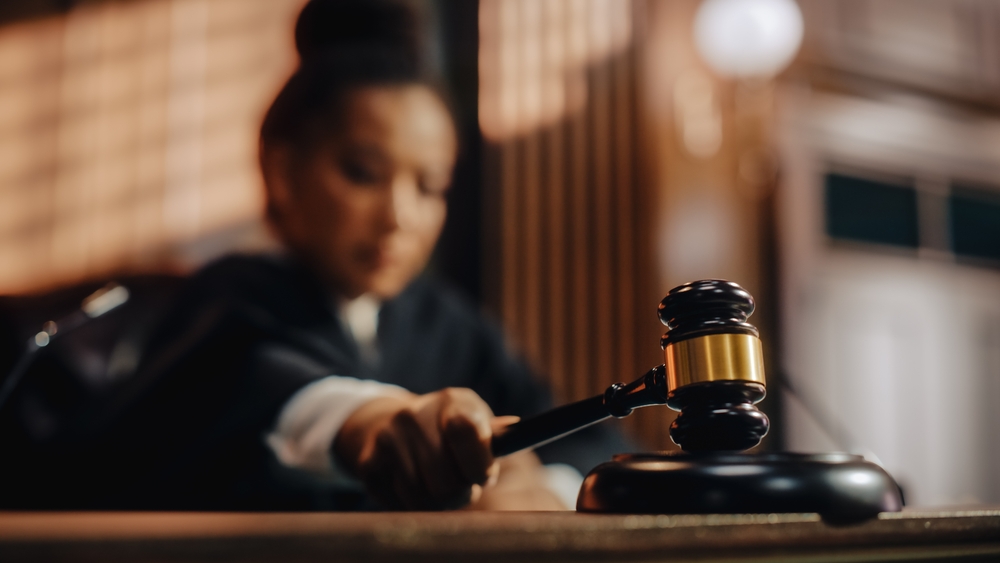Federal Criminal Court Procedure
Criminal Defense Attorney in the City of Houston Defends Clients Facing Federal Crimes in Harris County, Fort Bend County, Montgomery County, and Throughout Texas
At any given time, I represent several individuals charged or being investigated with federal crimes. I find that many people are confused and scared of the process of the Federal Criminal Court Procedure. The federal system seems like a mysterious animal as compared to the state system. The agencies involved seem more formidable and the Judges more powerful. Frankly, it is intimidating to most people and even lawyers. The point of this essay is to try and take some of the mystery out of the process and relieve the anxiety.
The first thing you need to know about the feds is that their investigative process is usually much different from State law enforcement. This is because of the types of crimes they investigate. A federal case might be investigated by the IRS, Homeland Security, DEA, FBI and ATF. Every now and again the postal inspector might get involved. They are authorized to investigate crimes that are codified in the Federal codes. Most of these crimes can be found in Titles 18 and 21 of the Federal Code. Some crimes, like Drug Trafficking or Fraud, should be familiar to you.
In the federal arena, an investigation usually takes place long before an arrest is made. (There are exceptions. See below.) Federal law enforcement likes to make sure all their T’s are crossed and I’s dotted before any charge is requested. They may have investigated the crime for many months before a charge gets filed and often an indictment is obtained before the arrest warrant issues. A target of the investigation may never know he is being investigated until he gets a visit from a couple FBI agents. The main case agent will often work with an Assistant U.S. Attorney in the appropriate District, but it is the agent’s baby and makes many decisions about the course of the investigation himself. Agents are well educated and experienced, and I have found that U.S. Attorneys often defer to them.
There is one very good reason for an agent sewing up her case before it gets to the courts. The Federal Rules have a solid speedy trial requirement. If the defendant so chooses, he can require the Assistant U.S Attorney to proceed to trial within a couple months of arraignment or face mandatory dismissal. Much of the evidence required for prosecution takes some time to obtain, such as bank records, cell phone forensics, witness statements. An agent may put the target under surveillance to identify cohorts. All this evidence must be in good admissible form before trial begins. The last thing the agents or prosecutor want is to be caught with their pants down in front of a federal judge.
This is substantially different than most state law enforcement investigations. The typical state case begins with a phone call to the police or with a police officer viewing an offense. In such a case, the investigation begins during and shortly after an arrest. Further investigation may take place, but it is going on while the court system has taken over. By the time court processes begin in the federal system, the case is usually good to go. I say usually because you might have some incest between State and Federal law enforcement, where the feds take over a state case because of a stronger interest. An example of this might be where a state trooper pulls over a truck filled with cocaine. Another example can be found in the Houston Division, where the feds have been getting involved in aggravated robbery cases when they have proof that crews have organized to commit several robberies. However, even in cases where the federal government takes over, they spend quite some time investigating the strength of the evidence before putting it in front of their grand jury. I have had cases sit in State court for six months before the feds finally pulled my client out of the county jail.
Most of the time, the State is delighted when the federal government files the same charge against one of their defendants. It means less work for them, and they quickly dismiss the State prosecution. However, political motivations sometimes intercede, and a defendant might face dual prosecutions. This is obviously difficult on the defendant, but it is also tough on the prosecutors. The U.S. Attorney doesn’t like losing control of their evidence through State discovery procedures. Neither one likes trying a case where all their witnesses have already been examined under oath in a prior trial.
Bail in the Federal Criminal Court Procedure

Despite the perceived differences between State and Federal processes, the defendant will likely only feel the difference in two ways. First, plea agreements in the federal system are largely governed by the sentencing guidelines. (More below.) The second is the bail system.
In the Federal Criminal Court Procedure, release on bail is governed by the The Bail Reform Act of 1984 and its interpretation. Under the Act, it is assumed that an individual charged with a Federal Crime should be released on his own recognizance, with some exceptions. Under 18 U.S.C. §3142(b), an accused must be released on a personal promise to appear unless the magistrate determines that “such release will not reasonably assure the appearance of the person as required or will endanger the safety of any other person or the community.”
All that sounds good, since policy clearly points towards release. However, release with a simple promise to appear and agreement not to commit any new crimes while on release is atypical. The magistrate is authorized to impose conditions for release, and often does. In addition, as noted the magistrate doesn’t have to release if she believes the defendant won’t show in court or presents a danger to the community. Some defendants are presumed dangerous, such as those charged with drug trafficking offenses.
The process by which the magistrate makes this determination is as follows: Once a defendant is arrested, he is brought before the court for a preliminary appearance. During this appearance, the defendant is informed of the charge and inquiry is made about whether he has hired counsel or needs one appointed to him. Finally, the magistrate asks the government if they are moving to detain the defendant. If the government is not seeking detention, the magistrate will consult the pretrial report prepared the assigned agency and decide if conditions of release are recommended. The magistrate might entertain argument on this point, and then order the defendant’s release with whatever conditions she deems appropriate.
Action at the preliminary appearance varies. Sometimes a defendant has already been indicted by the time he is brought to court. Sometimes he isn’t in custody and has been “summoned” to court for his appearance. Sometimes he is already represented by counsel. However, this does not change the basic nature of what goes down at a preliminary appearance. The main event is the release determination. If the government tells the magistrate that they are seeking detention, a hearing is scheduled within the next three days. The defendant stays in jail until the hearing.
Those familiar with the State system of bail bonds will probably see one important improvement in the Federal system. It doesn’t cost a lot to get released on a Federal charge. A magistrate might condition a release on a promise to pay money if the defendant fails to appear, but this is usually unsecured. Even if secured, the magistrate doesn’t often require a money deposit or bond. The system is more humane and responsive to the presumption of innocence.
Detention Hearing In Federal Court
Under the rules of Federal Procedure, if the Government moves to keep the defendant in custody, a detention hearing must be held within three days. The defendant has the right to a lawyer at this hearing. Assuming the case has not already been indicted, the government must prove two things at a detention hearing: 1) probable cause that a crime has been committed and 2) reasons why the defendant is likely to flee or be a danger to the community if released.
I have had detention hearings last all day, but this is rare. The Government likes to produce a nuts-and-bolts presentation of probable cause. Most of the time, the Government lawyer will put on an agent that is collaterally attached to the case, but not the lead case agent. Hearsay is admissible in the hearing, so the Government doesn’t want to subject its lead agent to cross examination or allow defense counsel to lock the agent in on the evidence. With regard the second element, the Government might rely on the presumption provided by the crime (i.e. drug trafficking) to establish danger. It might also present evidence of the defendant’s immigration status to establish the danger of flight.
The defendant can produce any number of witnesses to counter the government’s assertion that he is a flight risk or danger to the community. Even if charged with a crime that presumes danger, this presumption can be challenged. It is important to note that The Bail Reform Act allows detention only if there are no combination of conditions of release that can assure defendant will show in court or be a danger to the community. It is defense counsel’s job to present to the court alternatives to incarceration and make good argument about why they are sufficient. The good news is that even in cases where the government wants detention, magistrates often release with conditions.
Facing Criminal Charges in Texas and Have Questions? I’m Houston Criminal Defense Attorney Ed Chernoff, And I Can Protect You. Call My Office Today at 713-222-9141 or Fill Out My Online Contact Form For a Free Consultation About Your Case.
The Arraignment In Federal Court
The next thing that happens is the arraignment. If already indicted, and the government isn’t moving for detention, the magistrate might arraign and release the defendant at the preliminary appearance. If a detention hearing is held, the magistrate might arraign after the hearing or set the case for an arraignment setting. The purpose of an arraignment is to notify the accused of the formal charges and take the plea of not guilty. It is more formal than in State court, but hardly stressful. At the arraignment, the magistrate (or sometimes the Federal District Judge) will notify the defendant of his motion and trial dates. This is when the real work begins for the lawyers.
How Is The Federal System Different From State?
The initial process is somewhat different from State court, but there is nothing of which you need to be afraid. You are charged with a crime. You get out to fight the charge. The process after release won’t feel much different either. You go to court several times and then either go to trial or plead to the Judge with or without the benefit of a plea agreement. The entire process might take more than a year.
It won’t feel much different to you than what you already know of the State system. However, what is happening in the background will be very different. Discovery is different in Federal court, and your lawyer needs to know how to navigate his boat in these choppy waters. The Federal Code of Criminal Procedure allows the Government to make discovery requests from the defendant in certain circumstances. That comes as quite a shock to the uninitiated lawyer.
What may be different for you(and maybe your lawyer) is the plea negotiating process. In State court, plea bargaining looks like a scene from a rug bazaar. At a State court appearance, you might be sitting in the audience watching the interaction between your lawyer and the assistant DA, haggling over the price of a plea. Almost any agreement between the two can be consummated and the court will accept it. It doesn’t work that way in Federal court.
Both the defendant and the U.S. Attorney are constrained by the federal sentencing guidelines. Congress has determined that similar crimes should be punished similarly throughout the Federal court system and has delegated responsibility to the U.S. Sentencing Commission to determine what the appropriate punishment should be for similar offenses. These punishment formulations have been codified in a book, which gets updated annually. In plea negotiations, this is where the sauce is made.
I have written extensively about when it is appropriate to take a plea bargain and when a defendant should take his case to trial. My rules still apply, but there are complications in the federal arena. In State court, a final agreement can be solidified before the defendant pleads guilty, but in Federal court you never really know.
Except in very rare circumstances, a plea agreement does not lock the Judge into a particular sentence. I don’t want this to sound more ominous than it is. One thing that separates the good from bad federal criminal defense lawyers is the ability to push the odds in favor of his client in plea negotiations, but in the final analysis the probation officer who does the pre-sentence report, the Assistant U.S. Attorney, the defense attorney and the Judge may all have different sentencing guideline calculations. In some districts the Assistant U.S. Attorney will agree to put his proposed guideline calculations in the written plea agreement. This is filed prior to plea and has persuasive effect on both probation and the court and is one way to cut the odds.
There are multiple ways to veer a sentence lower, but it would require a treatise to discuss them all and I don’t want to turn this essay into a book. Suffice to say there are things that can be done by a defense attorney to relieve concern that the Judge is going to go rogue at sentencing. An experienced Federal Criminal Defense Lawyer can sufficiently approximate a sentence for his client to decide whether a plea agreement is in his best interest. However, it is an art not a science.
Chernoff Law is Committed to Answering Your Questions. I Offer a Free Consultation and I’ll Gladly Discuss Your Case With You at Your Convenience. Contact Me Today to Schedule an Appointment.
Sentencing Federal Criminal Court Procedure
Once a defendant pleads guilty, he is not sentenced right away. This is different from State court, where a defendant is usually sentenced immediately after his plea. After a plea of guilty, which is referred to as a re-arraignment by the court, the Federal Judge orders probation to prepare a pre-sentence report. The case is then set for sentencing. It might be two months before final resolution of the case. If the defendant has been released, he can expect to stay free prior to sentencing.
The assigned probation officer will investigate the facts of the case and personal characteristics of the defendant, including family history. He will delve into any drug or alcohol abuse. He will interview the defendant and attempt to ask him about his version of the case. He will attempt to calculate the guideline range based on information received. Then he will prepare a report and distribute it to all the parties.
A good Federal Criminal Lawyer will get involved in this process. He should exert some control over the version of facts provided to the probation officer, whether that is client preparation or substituting a written statement. He should make sure that probation has contact with client’s family members. He should provide character information through letters and photographs. You need to help your lawyer in this regard. Your lawyer should absolutely object and argue against enhancements, criminal history and suggested variances with which he disagrees.
Can I Get Probation In Federal Court?
Yes, I’ve done it. However, it is a unicorn. Many times if a case is minor enough that it falls within a sentencing guideline zone that allows for probation, the case isn’t filed or if jurisdiction exists, it is shoved over to the State to prosecute. Probation is a realistic possibility only if the sentencing guidelines recommend a sentence of less than 12 months. This is quite different from State court, where probation is given out like candy.
I don’t have the words to express how grateful we are for Mr. Chernoff and his team. They always kept us updated and were available for any questions we had. They were able to obtain the best possible outcome. I would definitely use him again and highly recommend him.
Ed saved my life and career. Incredible lawyer if you’re in trouble.
He put my fears at ease and helped me get my case dismissed and my life back on track. I would highly recommend hiring Ed and letting him do the same for you.
Trial In Federal Court
Frankly, this is more of an issue for your lawyer than for you. What you will see is a more formal version of trial as it is commonly performed in State court. One great thing about the Federal Criminal Court Procedure is that if your case is set for trial, it will go to trial. Federal Judges are sticklers about dates and times. There won’t be several trials set on the same day. A jury panel will be called for your case only. If the Judge says that testimony will begin at 9am the next day, that is when it will start. You won’t be sitting through docket calls and other court business, waiting for the Judge to get to you. Your case is treated with the importance it deserves.
For the lawyer, there are only a few things that will be substantially different than State trial. The biggest is jury selection. I have had some Federal Judges allow me to conduct full on voir dire, but most Federal Judges like to pick their own jury and let the lawyers provide suggested questions. Some Judges allow a sort of hybrid voir dire, allowing the lawyers 5 or 10 minutes to converse with the potential jurors. A lawyer better find out what his Judge’s policy is before trial or might be in for an unpleasant surprise.
The rules of evidence aren’t too different. Both the Federal and Texas originated from the Model Rules, though the Federal system adopted some differences in hearsay exceptions and limits in cross examination. A lawyer might be shocked in the middle of a Federal trial to hear the Judge express her opinion about evidence presented, since comment on evidence and guilt is expressly forbidden in State court. Not so in Federal land, and this never inures to the defendant’s benefit. On the other hand, a lawyer new to the Fed arena will be pleasantly surprised at how educated, intelligent, and interested the Judges are. If you have a good Motion to Suppress or objection, it will be seriously considered without favoritism.
Afraid Of Federal Criminal Court Procedure?
I promise you there is nothing in Federal Criminal Court Procedure to fear. There are no boogiemen. Don’t assume that punishment will be greater or that you will necessarily be incarcerated while waiting for trial. If you have any experience in State court, or believe you understand how it works there, you can safely extrapolate that experience and apply it to Federal Court. The two big things that are different are bail and plea negotiations, but both are completely manageable if you get sufficient legal help. If you need a lawyer or just have questions, feel free to contact me at the office and we will discuss.
























Reviews Matter
★
★
★
★
★
★
★
★
★
★
★
★
★
★
★
★
★
★
★
★
